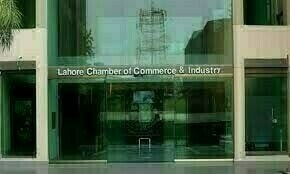LAHORE: LCCI SVP Engineer Khalid Usman calls for Strategic Economic Reforms in pre-budget seminar at Minhaj University
Lahore. Senior Vice President of the Lahore Chamber of Commerce and Industry Engineer Khalid has delivered a powerful and insightful address at a pre-budget seminar organized by Minhaj University.
Former LCCI vice president Faheem-ur-Rehman Saigol, former federal and provincial officeholders and leading economic experts also participated.
Engineer Khalid Usman began by reflecting on the challenges Pakistan has recently overcome on the geopolitical front. He said that Pakistan had successfully concluded a difficult phase of conflict, a war that was essentially imposed on the nation.
He stressed that unlike the external wars, Pakistan’s economic crisis is self-inflicted a consequence of decades of policy missteps, structural inefficiencies and lack of foresight. This is not a war waged by others. It is the outcome of our own poor decisions, bad governance and negligence over the past 25, 50, even 76 years.
Addressing the young students in the auditorium, Engineer Khalid Usman encouraged them to define their goals clearly and reflect on how they spend their time and money. “If I ask any of you where you see yourself in ten years, your answer lies in two things: where your time is spent and where your money goes. If these two elements are aligned with your goals, your future success can be predicted with remarkable accuracy,” he added.
Engineer Usman said that the national budget should not merely be a financial document, it should serve as a strategic roadmap and a symbol of collective optimism for the country’s future.
He lamented the lack of transparency and consultation in the budget-making process, said that the business community is often left in the dark. Engagement with stakeholders should be proactive, not reactive. The government should consult us not just to avoid surprises, but to ensure alignment between national priorities and business realities.
Addressing the perception that Pakistan’s industries are heavily protected, Engineer Usman clarified that only a few sectors such as the sugar industry benefit from state protection and regulatory advantages. He said that beyond these isolated sectors, the majority of Pakistani industries including textiles, plastics and packaging operate in a highly competitive environment.
Despite lacking equal opportunities, our businessmen have continued to keep these industries alive through sheer resilience and entrepreneurial spirit. He commended the Pakistani business community for its perseverance.
Speaking on Pakistan’s core economic challenge, Engineer Usman outlined the fundamental issue which is the imbalance between dollar inflows and outflows. He said that our biggest economic problem is that we do not earn enough foreign exchange. We import more than we export. We rely on remittances and loans instead of building sustainable, export-driven growth.
He said that without addressing this imbalance, Pakistan will remain in a perpetual state of economic uncertainty. As long as we are not producing enough goods locally and exporting them, we will keep borrowing dollars to survive. This is a dangerous cycle.
Engineer Khalid Usman also called for shifting Pakistan’s economic model from import dependency to domestic production and exports. The upcoming budget must reflect a clear national strategy. It must signal a shift toward increased productivity, industrial competitiveness and long-term sustainability. Without this, we will continue to say that Pakistan is going through a critical phase — but that phase will never end.
Copyright Business Recorder, 2025


